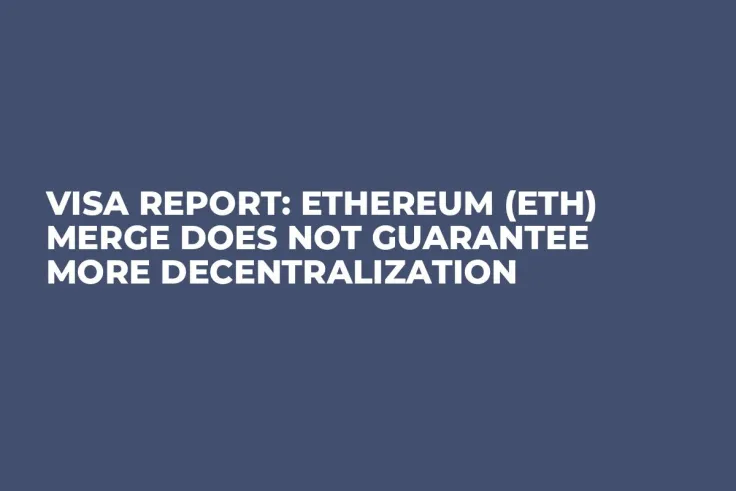
Mert Özbay and Mustafa Bedawala of Visa Cryptocurrency Department explain what we should not expect from the Ethereum (ETH) Merge activation — and why this upgrade is still crucial for Web3.
Visa: Ethereum (ETH) Merge does not advance decentralization immediately
Visa's cryptocurrency arm released its much-anticipated The Merge: What to expect from a new era of Ethereum report on the mainnet activation of The Merge mechanism.
At @Visa, we are excited to share our latest research piece, where we delve into the specifics of "The Merge", its potential ramifications for the blockchain trilemma, and the upcoming blockchain upgrades that we are closely monitoring. pic.twitter.com/kL3IZepD4R
— Mustafa (@digitalmustafa) January 18, 2023
First of all, the authors highlighted that this event was really game-changing for Ethereum's sustainability, eco-friendliness and resource-efficiency. Regarding these aspects, this is the most impressive transition in tech history so far:
It is estimated that transitioning from PoW to PoS will decrease Ethereum's energy consumption by 99.95%. It is the first demonstration of a system of this size that reduces carbon footprints solely through innovation and redesign.
Meanwhile, when it comes to decentralization and security, the activation of The Merge might look like a double-edged sword for Ethereum (ETH) in the long run. Despite the fact that proof-of-stake consensus has a lower entry barrier (thanks to staking providers), it does not result in better decentralization immediately.
The whale-style domination of the largest miners can be replaced by the oligarchy of staking entities since the 32 ETH threshold for a validation node is too high for Ethereum (ETH) enthusiasts. As such, staking pools can gain too much control over Ethereum's (ETH) progress thanks to the large amount of Ether staked by their clients.
Most crucial developments for Ethereum (ETH) are yet to come
The same observations work for the scaling prospects of the largest smart contracts platform. The transition to proof-of-stake (PoS) consensus does not result in a throughput increase for Ethereum (ETH): this would only be achieved through sharding or via Layer 2 solutions.
As such, Visa cryptocurrency experts will closely monitor the next developments in the Ethereum 2.0 roadmap to decide on whether it is ready to play a significant role in the global cross-border payments system:
The development of scalability and security features in Ethereum 2.0 over the next few years will be critical in shaping the network's ability to be used for broader payment use cases.
As covered by U.Today previously, Ethereum (ETH) Merge was activated in September 2022: the network became the first to migrate from PoW to PoS and completely replace mining by staking.
 Vladislav Sopov
Vladislav Sopov Dan Burgin
Dan Burgin